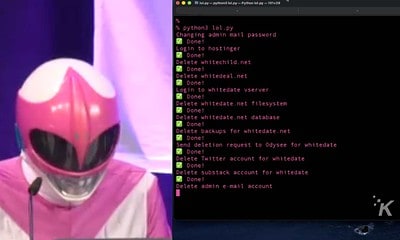Security
4 ways to tell if the person calling you is not a scammer
We all get that random number calling us, but we never know if it’s a scammer or not. Here’s 4 things to look out for the next time this happens.

Just a heads up, if you buy something through our links, we may get a small share of the sale. It’s one of the ways we keep the lights on here. Click here for more.
This may seem counter-intuitive, but I don’t think you should always answer your phone. More and more, the person on the other end isn’t someone you know. They just want to sell you something, or scam you, or they just want to see if they’ve got a working phone number on their call list.
So, how can you tell if your caller is legit? Spoiler Alert: I saved the best one for last!
1. Their name and phone number pop up in the caller ID, and you recognize the name.
Many times I receive a call from “Unidentified Caller” or “Number Blocked”. Why should I answer those calls? I primarily use my cell phone but my carrier only sends me a number, not the full caller ID info. That is why I always add every caller to my contact list. If it ends up being a sales call or a scammer, I block the number from being able to call me in the future.
Sure, this means I sometimes miss a call from my kid when she’s lost her phone and had to borrow a friends. But then, she always leaves a message.
2. When you don’t answer, they leave a voice mail.
Legitimate callers leave a message. It’s a friend or family calling from a new number. It’s your Dry Cleaners calling to let you know you left a credit card in your shirt pocket. To be sure, this isn’t a sure-fire way to filter out the junk calls. I get plenty of messages that start with “If you want to make $1000 each and every day then please listen to this entire message.” But, for me at least, it works 90% of the time
3. Their phone number doesn’t show up on 800 Notes.
There are several websites that let you check the caller information. I’ve found that 800 Notes generally has current info. You won’t always find out exactly who is calling you, but you can tell, if a lot of people are reporting the same number, that it’s not someone you want to talk to.
4. They don’t tell you that your computer has malware or isn’t up-to-date. (Scammer for sure!)
Recently, we’ve had several people call us to repair their computer after they’ve had a conversation with “Microsoft” or their “Internet Service Provider”. There are variations, but it comes down to the same basic thing:
a) “Microsoft” or “Dell” calls to let you know that your Operating System is out of date and you need to update it right away. The caller would be happy to update it for you if you’ll just give them remote access to your computer.
b) Your “Internet Service Provider” or ISP calls to let you know that you have a terrible virus and you are spreading it all over. Again, they’d be happy to remove all the malware. You just have to give them remote access to your computer, and generally, pay between $75–500 for the privilege.
Unless you’ve had already signed up for a service where you have asked a company to scan your computer on a regular basis, no well-meaning person is going to call you to “help” you with your computer. When someone remotely accesses your computer, they will generally add malware to it, not remove it!
This article originally appeared on Medium and was republished with the author’s permission. To learn more about Gail Eddy, visit her website Geek For Hire, Inc..



























